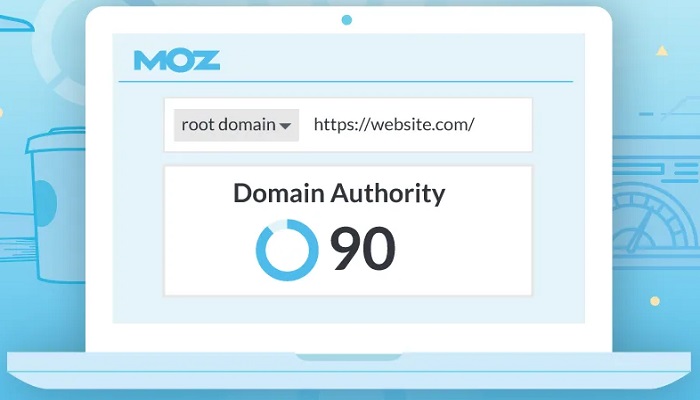As an on-page SEO factor, domain authority (DA) can help your website occupy a very strong position on the search engine result page (SERP).
Despite the fact that you have a functioning website, you may not yet be visible online if your DA is low.
But if you really want to make money from your blog, your marketing success depends on your domain authority.
You need to know how to use your DA to leverage your online presence.
This post will guide you on how to bring your business from the last to the first result page of a search query on Google.
The mechanism depends on the SERP’s pecking order which determines how your website ranks on search engines.
So, in brief, what is SERP’s pecking order?
Understanding SERP’s Pecking Order
SERP’s pecking order is the factor that determines the hierarchy of search results on the SERP.
When you make a search query on a search engine, it considers certain things to determine which website comes first and last on its result page.
As many websites relatively talk about similar topics, search engines tend to screen all the websites on the internet and fetch out the ones with the most relevant information about the search query a searcher makes.
Remember, when you make a search query on Google or any other search engine, it returns pages containing lists of different websites that are relevant to your search query.
This implies that SERP’s pecking order affects the visibility of your website on search engines.
There are over 200 ranking factors Google considers to determine your SERP’s pecking order.
These include on-page and off-page SEO factors. Other factors aren’t limited to website analysis, competitor analysis, keyword suggestion and research, server-side management, and PPC advertisement.
Under the on-page SEO factor, you have the following areas in your website to optimize: web page title; meta description; web page URL; keyword; anchor text; domain authority; ALT tag; XML sitemap; links building; canonical or redirection issue, robot.txt, site security, URL structure, page speed, and so on.
I guess that’s a lot of work you can’t do all at once but can catch up by starting with one.
Be on the lookout for our post on those factors as time won’t permit us here now!
Nevertheless, as far as this post is concerned, let’s look at domain authority.
Domain Authority Score
From a search engine perspective, domain authority measures the amount of reputation your website has to lead in a certain industry or niche.
This is to ascertain your blog content about a certain subject or business of high quality.
If the quality of your blog is good, your domain authority will be good and your content will rank high on search engines. If the quality is bad, your domain authority, as well as your ranking, will be bad.
But you and I know, that isn’t good. You’ve to go for the best.
Even when our children’s performance in school seems to be poor, we encourage them to work harder.
If having a website has to be a course, your domain authority reveals your overall performance.
So you’ve to do it well.
Domain authority ranges from a score of 1 to 100. New websites usually score 1 at the beginning and gradually improve based on owners’ relentless efforts.
This principle means, that the better the content of your domain, the higher it ranks.
However because domain authority is logarithmic, it can be tougher to score higher as your domain authority rises.
That’s, while it’s easy to scale between scores of 10, 20, and 30, it’s difficult between 50, 60, 70, 80, and above.
Since authority scores can’t exceed 100, high-authority websites keep their score at 100.
This implies that the domain authority of low-authority websites drops as the domain authority of high-authority websites increases.
In other words, it’s possible to experience a great fall in your authority without losing your backlinks if your competitors gain more backlinks.
Similarly, your domain authority can collapse if high-authority websites receive massive backlinks.
This implies that, when you’re boosting your domain authority, your focus isn’t to have a website that has the highest authority score but to have a website that has a higher authority score than its competitors.
Why Domain Authority Matters
As a content marketer, domain authority helps you to focus on relevancy, link building, and organic traffic your website needs to achieve a long-term investment.
Domain authority is key to your success in whatever business you intend to do, e.g. affiliate marketing.
Inasmuch as you’re not going to be your own customer, you have to stick to the principle.
The instrument for gaining audience or customer loyalty is domain authority.
Most audiences consider your domain authority before committing their loyalty to it. Companies likewise weigh your domain authority before linking up to your business.
If your domain authority is good, they believe your website has the prospect to influence their businesses and they start linking up to it.
That makes domain authority very crucial to White Hat SEO – building link networks or backlinks with other businesses in your industry.
Since you’ve familiarized yourself with domain authority and its importance to content marketing, it’s now time you start taking its advantage to boost your website’s search engine ranking authority.
Among other efforts, domain authority building is a factor you can’t afford to ignore in a very dynamic competitive market. It’s an effort you must commit yourself to as you increase the content of your website.
So, what you have down this line strictly focuses on how you can improve on your domain authority.
How to Boost Your Domain Authority
The need to boost your domain authority suggests that your blog must have highly compelling content that everybody likes to link up to for reference.
In doing this, let’s first consider these three (3) basic things you must do:
- Choose the right niche for your content
- Use a neat theme for your content
- Build outbound links.
- Earn Backlinks from High-Authority Websites in Your Industry.
- Build Internal Links.
- Create Original Content.
- Make Your Content Compelling.
Items 1 to 4 have been largely discussed in other posts. Click on them for further study on white hat SEO practices to boost your domain authority.
The remaining three items are discussed as follows:
1. Build Internal Links
Building an “internal network of links” creates the paths that search bots will crawl from one page to another on your website.
If your page has no internal links, it becomes difficult through the page for search engines to crawl into your entire website.
In such a circumstance what Google assumes is that the page has no reputation to appear on the SERP.
Secondly, a page that has no internal links leaves readers with no choice but to leave the website immediately after reading the page instead of using the page as a gateway to other relevant pages you have on your website.
Meanwhile, the longer a reader spends on a website the better for its domain authority.
Google search engine considers the duration of visitors on a website as part of the key factors to determine quality content.
The theory holds that visitors stay longer on a website only if it’s relevant to them, otherwise they leave immediately.
If you don’t want to miss this benefit, you must adopt the principle of internal link-building to boost your domain authority.
2. Create Original Content
Its possible content is compelling but not original. You don’t gain domain authority with duplicate content. Find out the harm duplicate content does to your website on SERP.
Original content is content you create by yourself, which has no compromise or what Google calls “duplicate content“.
By all standards, original content has the potential to make you an authority in an industry.
If the quality of your content is good, it increases your thought leadership, which is technically called domain authority.
The strategy involved in writing original content is to make your website unique.
3. Make Your Content Compelling
No matter how compelling your copy is, it won’t get to the right audience if you don’t post it in the right niche.
Before you can write a copy that will have value, you have to first identify your audience and what niche is relevant to them. This practice helps you target the right audience and the right keywords.
Your content can be about you, your experience, your background, who you were, who you aren’t, or who you like to be.
Or it can be your thought system.
The niche you choose isn’t what matters but how it helps showcase your content.
Take note of this.
When you have a problem, you consult people, books, or even God!
Yes, that happens.
Trying to find answers at all costs – not even without spending money, we’re eager.
So, when people come online to seek answers or value, your role as a content marketer is to give them whatever possible answers that’ll ease their condition, not add to it.
That’s not hard to do.
You’re just going to be making an impact on people’s lives like a life coach.
The values that readers are looking for are the same but differ in terms of their demography.
Having a specific niche for a specific category of people can help you approach them without any problem.
The content that will compel a professional is different from that which an amateur needs to catch up to a task.
While some readers want to learn a new skill, others want to improve on the old.
So approaching your target audience through a niche that’s relevant to them will help you focus on writing fascinating content and improve your domain authority.
Conclusion on Domain Authority
From what you’ve learned so far, the theory of domain authority is putting your website in a cutting-edge position amidst your competitors for search engines and humans to love your content.
I hope you’ve realized that the best on-page SEO effort isn’t just writing great content but making your content visible and compelling on the SERP.
RELATED ARTICLES



I’ve been trying to improve my ranking for a couple of years now. It doesn’t matter how much work you put it, it’s a very slow process. However, it pays off with time. Good article, thanks for sharing the info.